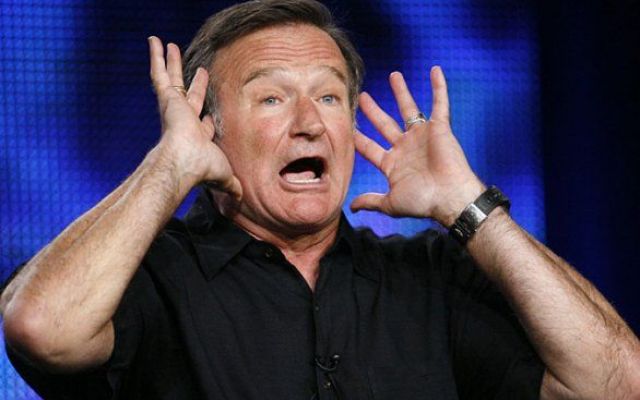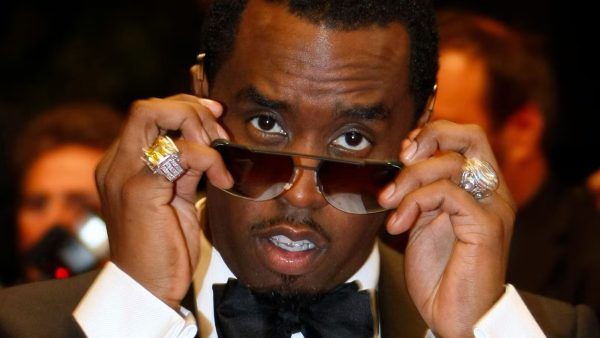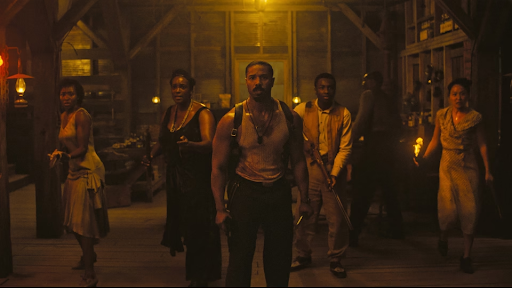The many faces of Robin Williams
Remembering an icon
On August 11, 2014, the world of entertainment flew its flags at half-staff after the death of actor and comedian Robin Williams.
“He could make anyone laugh,” freshman Madeline Barber said, looking back on William’s life as a comedy gem. “He was a childhood icon.”
This same feeling resonates through the performance community as family, friends, and fellow actors of Williams mourn the loss of an extraordinary talent. Williams’ body was found in his Tiburon, California home; the cause of death ruled a suicide. His downward spiral began after an onset of depression, a relapse in substance abuse, and signs of Parkinson’s disease. His daughter, Zelda Williams says she feels “stripped bear” at the loss of her “gentle, kind, and generous” father.
Despite the inevitable sadness, Williams lives through the whimsical, inspiring, and even psychotic characters forever etched in the frames of American film. Williams put on countless faces, from the quirky faux-doctor in Patch Adams (1998) to the creepy photo developer Sy in One Hour Photo (2002). Robot or human, woman or man, he was able to bring life to even the most unbecoming characters.
With an otherworldly start to his career, Williams starred as Mork from the planet Ork on the classic TV show Mork and Mindy (1978-1972). Reciter of the renown alien greeting, “nanu, nanu,” Mork became a significant television figure representing the best parts of William’s comedic expertise. Mork, with his rainbow suspenders and zany personality is not just a television icon, but rather, he is a symbol of the spark that sent Williams soaring into popular culture.
However, Williams’ life wasn’t all spotlights and laughter. During Mork and Mindy (1978-1982), Williams developed a substance abuse problem that altered the rest of his life. He divorced his wife Valerie Velardi in 1988 and ended up marrying Marsha Grace, the family nanny. He continued to dabble in drugs and alcohol for the next twenty years, including the era of his
best movies and performances.
Who can forget John Keating, the nonconformist teacher from Dead Poet’s Society (1989)? How can anyone look back on Good Morning Vietnam (1987) and not chuckle at the unorthodox antics of Adrian Cronauer? Both these roles put Williams in the running for an Academy Award as best actor in a leading role. However, William’s did not receive his first Academy Award win until Good Will Hunting (1997). In the movie, Williams stunned the world with his performance as Sean Maguire, a hard-headed psychologist who is sought out to help a troubled young genius, Will Hunting (Matt Damon). Donning a scraggly beard and a collection of professor-esque sweaters, Williams’ performance as Maguire earned him an Academy Award in 1988 for Best Actor In A Supporting Role. It was well-deserved, as anyone who has seen the movie undoubtedly recognizes Maguire’s speech on the park bench as one of the best monologues in film history. Evidently, others felt the same impact, as fans used chalk to scrawl popular Williams quotes and compose brief messages to the late actor near the bench where the famous monologue was filmed. “You saved my life,” one scrawling read. “Robin, thank you,” read another. Williams’ many faces were not just faces in themselves; they woke people up from their melancholies, if even for a span of a two-hour movie.
Williams was a man of extraordinary flexibility. He appealed to all audiences, straying away from more adult roles in movies like Aladdin (1992), Flubber (1997), Patch Adams (1998), Mrs. Doubtfire (1993), Jumanji (1995), and Hook (1991). Of those films, possibly the most recognizable role is the Genie from the Disney film Aladdin (1992). Williams voiced the boisterous, big blue Genie, singing his way into the hearts of young children with the song “Friend Like Me.” The life and theatrics Williams put into the character made the cartoon a Disney classic. The movie was aired by Disney on all its channels on both August 16th and 17th to honor the man who gave Aladdin (1992) its comical charm.
Williams reached further into the family movie genre after Aladdin (1982). Literally putting on a face in the hilarious Mrs. Doubtfire (1993), Williams took on an even more complex role as a man who dresses up as an old woman in order to spend time with his kids after a nasty divorce. The movie became well-known due to Williams’ uncanny performance. He was entertaining in the best way and demonstrated the family morals of the movie well. Not only do the child actors in the movie relish his presence, but so do the audience as they laugh and cry along with the Hillard family.
After his death, Williams left behind his widow Susan Schneider, three children, and a large fanbase. The Robin Williams legacy is vast, ranging broadly in the comedy and film universe. His antics no doubt have lit up your television screen, as well as your smile. As a congregation of fans, we can choose to be disappointed that there will be no more new hilarities of Williams to be seen, or we can choose to press play on our favorite Williams movie and laugh away. The many faces of Robin Williams will forever be in our hearts and on our TVs. Rest in Peace.







